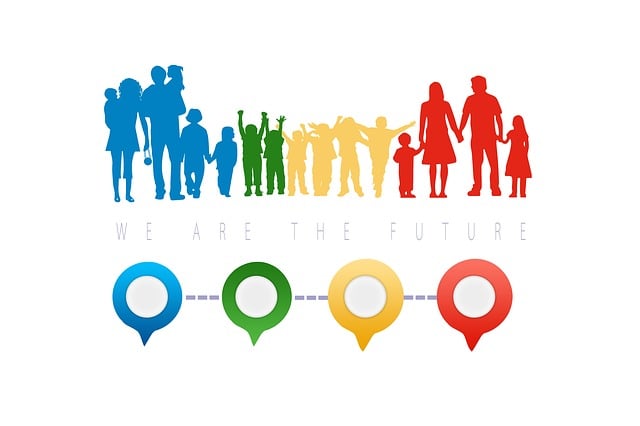The Child Protective Services Law (CPS) is a critical legal framework designed to safeguard children from abuse, neglect, and exploitation. CPS workers conduct thorough investigations, determine appropriate actions for protection, and offer support services. Legal representation is vital in child welfare cases, with professionals advocating for clients' rights while prioritizing the child's best interests. Understanding parental rights and responsibilities under CPS law is crucial, and professionals can connect children with essential resources for holistic well-being. Effective case management through communication, documentation, and data-driven decisions enhances positive outcomes within the CPS legal system.
In the intricate landscape of child welfare, comprehensive legal services play a pivotal role in safeguarding the vulnerable. This article delves into the critical aspects of navigating complex legal systems, focusing on child protective services law. We explore essential topics, including understanding the law, legal representation, court processes, parental rights, support services for children, and effective case management strategies. By examining these key areas, we aim to illuminate the path toward positive outcomes in child welfare cases.
- Understanding Child Protective Services Law
- Legal Representation in Child Welfare Cases
- Navigating The Court Process for Child Safety
- Rights and Responsibilities of Parents & Guardians
- Support Services for Vulnerable Children
- Best Practices for Effective Case Management
Understanding Child Protective Services Law

Child Protective Services Law (CPS) is a crucial component in ensuring the safety and well-being of children. This legal framework is designed to protect minors who may be at risk of abuse, neglect, or exploitation. Understanding CPS involves grasping the processes and regulations that govern the involvement of state agencies in family matters. When a child’s safety is suspected to be compromised, CPS workers are tasked with conducting investigations, gathering evidence, and determining the best course of action for the child’s protection.
The law provides guidelines on removal of children from their homes if deemed necessary, as well as services aimed at supporting families in resolving issues that led to the intervention. By navigating the complexities of Child Protective Services Law, legal professionals can offer comprehensive assistance to clients involved in such cases. This includes guidance throughout the entire process, from initial assessments to court proceedings and post-case management, ensuring the best interests of the child are upheld.
Legal Representation in Child Welfare Cases

In child welfare cases, especially those involving child protective services law, legal representation is paramount. The complexities of these proceedings demand professionals who understand the intricate interplay between legal rights and a child’s best interests. Legal representatives play a pivotal role in navigating the system, ensuring that all parties’ rights are protected and that the process remains fair and just.
They advocate for their clients before courts, agencies, and other stakeholders, providing guidance throughout each stage of the case. This representation is crucial in cases where families face allegations of neglect or abuse, as it helps to safeguard parental rights while also prioritizing the safety and well-being of the child. A qualified attorney can offer invaluable support, ensuring that all legal options are explored and that the best possible outcome is achieved for all involved.
Navigating The Court Process for Child Safety

Navigating the court process for child safety is a complex task that requires expertise and sensitivity, especially in cases involving Child Protective Services (CPS). The legal system plays a pivotal role in ensuring the well-being and protection of vulnerable children. When a child’s safety is at risk, the court process acts as a safeguard, offering a platform to address concerns and make critical decisions.
In child welfare cases, legal professionals skilled in CPS law are essential guides. They help families understand their rights and options while ensuring that all parties involved are treated fairly. These lawyers navigate intricate legal procedures, presenting evidence, arguing for the best interests of the child, and advocating for a safe and stable environment. Understanding the court’s role in child protective services is key to achieving positive outcomes and securing a brighter future for at-risk children.
Rights and Responsibilities of Parents & Guardians

In every child welfare case, understanding the rights and responsibilities of parents and guardians is paramount. According to the child protective services law, parents have a fundamental right to legal representation during any proceedings involving their children’s custody or placement. This ensures they can actively participate in decisions affecting their family and protect their interests. Additionally, parents are responsible for ensuring the safety, well-being, and welfare of their children, adhering to any court-ordered plans aimed at addressing any issues that led to the child protective services involvement.
Guardians, whether appointed by a court or through legal means, share these rights and responsibilities. They must collaborate with child protective services and attend all required meetings and hearings. Failure to do so could result in negative implications for the case outcome. Furthermore, guardians are expected to maintain open communication with the relevant authorities, actively participate in any interventions or treatments ordered by the court, and make decisions that align with the best interests of the child while considering the legal framework governing child welfare.
Support Services for Vulnerable Children

Vulnerable children often require specialized support services beyond legal representation. Child protective services law professionals can facilitate access to various resources, ensuring comprehensive care for these young individuals. This may include mental health counseling, educational support, and social skills development programs tailored to address their unique needs. By integrating these services, the legal process becomes more holistic, aiming not just to resolve legal issues but also to promote the overall well-being of the child.
Additionally, case managers can play a crucial role in coordinating these support services, ensuring they are tailored to each child’s specific circumstances. This collaborative approach fosters a safer and more nurturing environment, enabling children to thrive while navigating the complexities of the child protective services legal system.
Best Practices for Effective Case Management

Effective case management in child welfare cases is pivotal, especially given the sensitive and complex nature of these matters. Best practices involve a multi-faceted approach that leverages robust communication channels, thorough documentation, and data-driven decision-making. Case managers should maintain open lines with all stakeholders—including parents, guardians, legal representatives, and child protective services law experts—to ensure everyone is aligned and informed about the case’s progress.
Regular case reviews, clear goal-setting, and proactive risk assessments are key components of successful case management. Utilizing specialized software for case tracking can enhance efficiency by centralizing information, enabling better resource allocation, and facilitating compliance with legal requirements. This structured approach not only ensures that all aspects of a case are meticulously documented but also promotes informed interventions, ultimately fostering positive outcomes for the child’s welfare.






